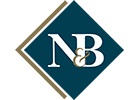27 Oct Better SAFE than…?
In brief, a safe is a security instrument that represents a promise by a company to issue preferred equity to its investors in the event the company is able to close a future round of preferred equity financing. Unlike a convertible note, there is no cash repayment feature, so safes are not technically debt instruments. Rather, investors are guaranteed equity “ preferred units or stock on the same terms as the next round. A somewhat close analog to a safe is a warrant.
Convertible notes are still popular because they allow entrepreneurs to raise money quickly and œkick the can down the road with respect to pinning down the finer points of what investors get for their money (e.g., the valuation of the company, and thus the price per unit/share). Safes purport to be even more convenient, in that they allow companies to avoid having to set a term, interest rate or other feature of a debt instrument like a convertible note.
Y Combinator is certainly on the cutting edge of startup financing, but it remains to be seen whether companies and their early-stage investors will take a shine to the safe model. Convertible notes have lost, and are continuing to lose, some of their appeal in favor of a return to straight equity sales, especially in smaller-money investments. Whether safes become the vehicle de rigueur is uncertain, but it’s probably a safe bet that¦.nevermind.


